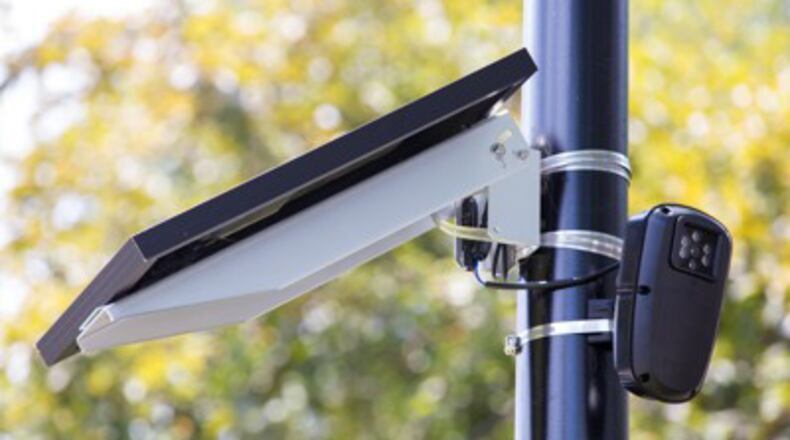A DeKalb County commissioner has allocated nearly $60,000 of reserve funds to install additional license plate-reading cameras in his district.
Commissioner Steve Bradshaw will use $58,500 to add several new cameras to District 4 to assist DeKalb police, according to a news release. The cameras, made by Atlanta-based Flock Safety, are placed at intersections and take pictures of passing vehicle’s license plates. The cameras also register the car’s color, make and model.
If one of the cameras spots a license plate listed as stolen or registered to a wanted suspect, police get a notification.
Located in central DeKalb, Bradshaw’s district is mostly within the police department’s East and Tucker precincts. Flock cameras have resulted in more than 100 vehicle recoveries in DeKalb so far this year, including 21 in the Tucker precinct, the release said.
“Because of Commissioner Bradshaw’s allocation, we can now provide more officers in District 4 with critical, real-time information they can use to protect the public and themselves," Tucker precinct Maj. Craig Medlin said in the release.
Licence-plate reading cameras used to only be used by law enforcement, but they’ve become increasingly utilized by private citizens and groups. Last year, DeKalb police estimated that roughly 50 neighborhoods have at least one Flock camera, which cost $2,000 each.
In July 2019, the DeKalb commission unanimously voted to allow DeKalb police access to private Flock cameras in addition to their own. However, neighborhoods still have to opt into the public-private partnership with DeKalb police.
The agreement is somewhat similar to the department’s relationship with Ring, a doorbell security camera company. Officers are able to monitor Ring videos that residents voluntarily upload to the doorbell security system’s neighborhood portal.
Police officials said investigators will use the Flock cameras to investigate specific crimes, and not to monitor everyday drivers. However, residents and experts have expressed concerns over privacy and possible over-surveillance in the past.
About the Author






